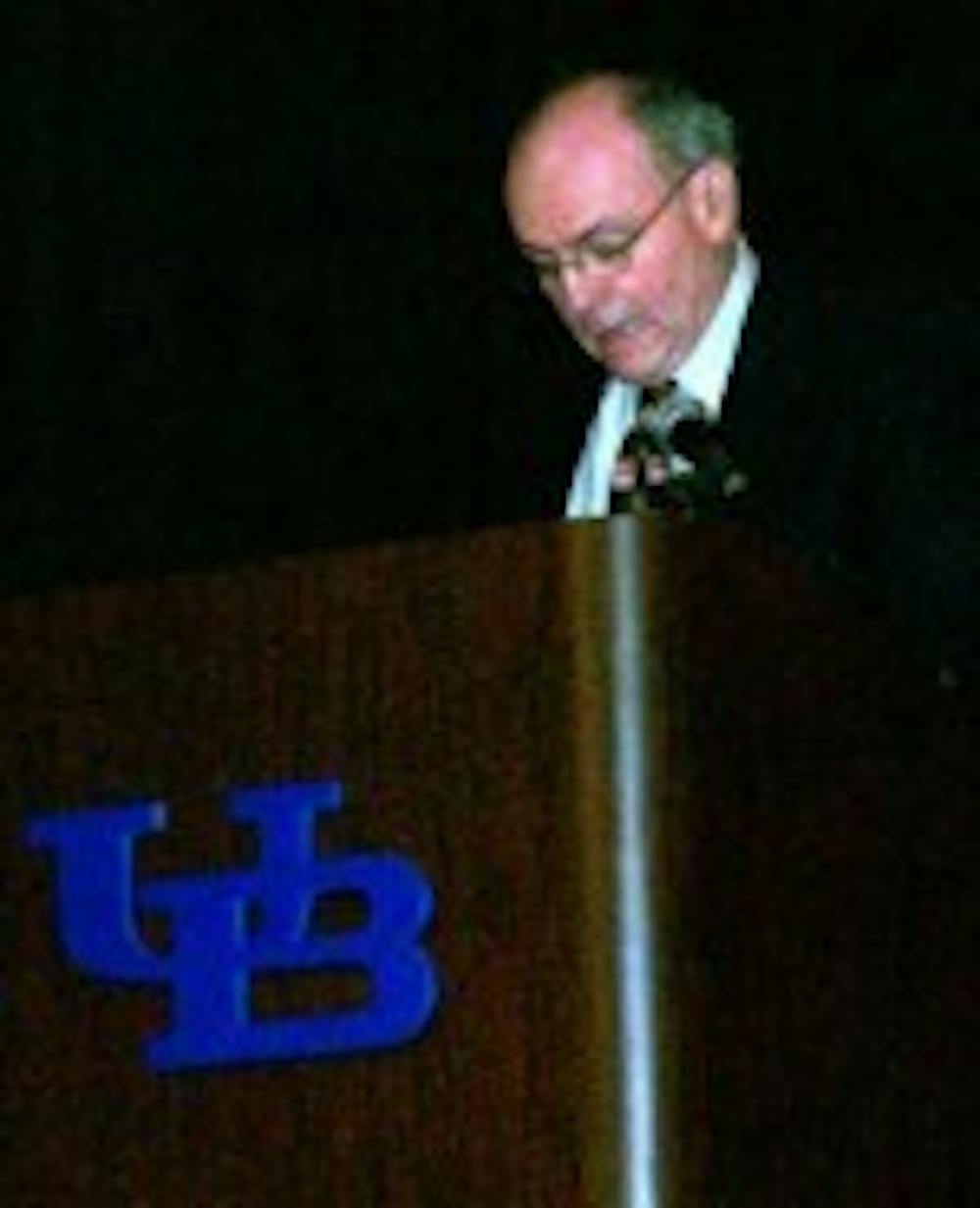David MacGregor, a professor of sociology at King's College in Ontario, Canada, gave a lecture on the United States' dependence on Middle Eastern oil and politics in Iraq on Tuesday.
"(A U.S. war against Iraq) may be about oil, and it may not be," MacGregor said. "One reason it might be is that a victory over Iraq would probably break Iraq. The U.S. foreign policy has been driven by the politics of oil."
Because the current oil supply within the Unites States is plentiful, MacGregor said the United States should not rely so heavily on the Middle East.
"If the U.S. really wants Iraqi oil, why don't they just lift sanctions and trade with Saddam Hussein?" he asked.
According to MacGregor, the difference between the Gulf War in 1990 and a possible war between the Unites States and Iraq this time is that the United States cannot justify an attack.
"I want to avoid the reality of inevitable warfare and destruction in Iraq," he said. "Perhaps the U.S. craves an old-fashioned, bloodletting colonial binge."
MacGregor said the threat of war in Iraq is leading the American public to forget its current economic slump and corporate scandals.
"It gets our minds off situations Bush can't handle," he said.
According to MacGregor, Iraqi people are worried the United States is plotting an assignation attempt on Hussein.
"The Iraqi people are afraid that these people coming in under the guise of weapons inspections could be special-forces to assassinate Hussein," he said. "I hope that things can be resolved peacefully."
Susannah Bartlow, a graduate assistant for the Marxist studies group and a doctorate student in English, said she agrees with MacGregor's politics and hopes the situation between the United States and Iraq can be resolved without violence.
"I like his idea of deep politics," Bartlow said. "It would be nice to learn more about how we could resolve the situation in Iraq peacefully."
In addition to the possible war in Iraq, MacGregor also discussed the United States' current occupation of Afghanistan.
"The situation in Afghanistan is the same as it was before the Taliban," MacGregor said. "America came in, apparently to get rid of the Taliban, but the result has been an increase in the production of opium and of drug trafficking."
Michael Rozendal, an English doctorate student, said MacGregor's lecture was "refreshing."
"We've had such a limited and skewed discussion of these things up till now. Probation is much less damaging than dropping bombs," Rozendal said. "The war on terrorism seems to be fomenting fundamentalists here and abroad. We have a very right-wing government."
James Lawler, professor of philosophy at UB, said U.S. aggression may be a symptom of power for power's sake.
"There's a clear power vacuum in the world, and the U.S. is trying to fill it," Lawler said. "Who wouldn't want to run the world if they could?"
MacGregor said by "coming in and exploiting unstable governments left by British domination," the United States is reasserting the colonial power given up by the British in 1945.
"I'm very concerned about leadership in this country. We're creating more enemies in the name of fighting them."





